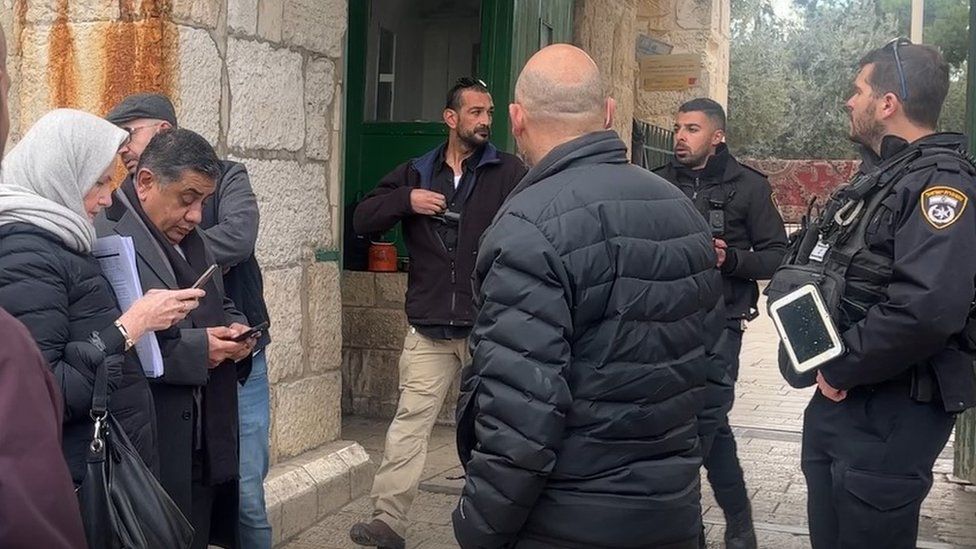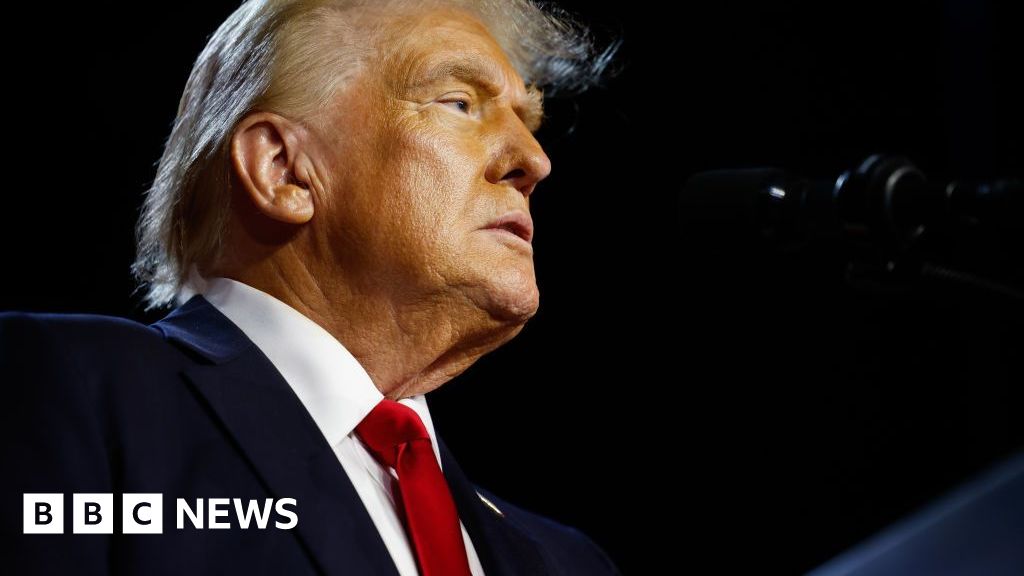ARTICLE AD BOX

Lord Ahmad showed a tweeted picture of himself as proof pof ID
By Tom Bateman
BBC News, Jerusalem
Israeli forces blocked the UK's Middle East minister from visiting the al-Aqsa mosque compound in Jerusalem for 30 minutes before allowing him to enter.
Lord Ahmad, a practising Muslim, was visiting the occupied east of the city during an official trip to the region.
The Islamic authority administering the site called it "unacceptable", saying: "Whether he came as a minister or as a Muslim he shouldn't have been blocked."
Speaking to the BBC afterwards, Lord Ahmad played down the wait.
He described it as "security checks, whatever they needed to do".
Israel's Border Police have been approached for comment.
The hilltop site is the third holiest in Islam and the most sacred place in Judaism. To Muslims it is known as Haram al-Sharif, the site of Muhammad's ascent to Heaven, and the entire compound is considered al-Aqsa Mosque. The same area is known to Jews as the Temple Mount, site of two Biblical temples.
Non-Muslims are allowed to go to the compound from a designated gate at specific times but not to pray, though Palestinians see visits by Jews as attempts to change the delicate status quo.
For Palestinians, issues surrounding Israeli security control and access for them are frequently the source of tensions and often have the potential to ignite conflict.
Lord Ahmad was asked to wait along with a small delegation of UK officials beside a police checkpoint at a gate to the compound.
The UK officials told Israeli border police that he was a British government minister and that the visit had been coordinated with Islamic endowment that runs the site, the Waqf.
However, this was seemingly not accepted for some time, with the discussion including the officials trying to clarify his identity by showing the Israeli forces a tweeted picture of him meeting Israeli Foreign Minister Eli Cohen on Wednesday.
An honour & privilege to spend time at the holy Al Aqsa Mosque this morning with the Director of Jerusalem Waqf Department Sheikh Azzam Al Khatib.
I emphasised the UK’s 🇬🇧 unwavering support for Jordanian Custodianship of Jerusalem’s Holy Sites & for the Status Quo. pic.twitter.com/8Q1LM4qqsm
The BBC is not responsible for the content of external sites.View original tweet on Twitter
The UK government, like the rest of the international community, does not recognise Israel's annexation of East Jerusalem, so official visits are not co-ordinated through the Israeli authorities.
The Waqf told the BBC it had taken the visitors' names and permit details on Wednesday night and given them to them to the Israeli police who check visitors at the gates.
"This is the policy... Whether this was an intentional delay or for other reasons, the Israeli authorities only want people to co-ordinate with them, through the Israeli government, only through the Israeli side," said Wafq director Sheikh Mohammed Azam al-Khatib.
"This was unacceptable... I talked to the police and I came down from my office with my staff to apologise to the minister for the actions of the Israeli police."
Wafq officials then escorted the minister inside the compound, where he toured the site and prayed in the mosque building.
Lord Ahmad, a former government envoy for freedom of religion, dismissed the suggestion that access was "prevented", saying the important thing was he was able to visit the holy places.
"But one hopes that when someone's coming specifically for the act of worship... one hopes, whether here in Jerusalem or elsewhere, across the world, that people are given the opportunity to freely practice and profess their faith."
WATCH: Israeli minister visits contested Jerusalem site surrounded by police
It comes amid growing concerns about further tensions surrounding the compound.
Last week, Israel's new National Security Minister Itamar Ben-Gvir, who now controls the militarised border police who operate in occupied East Jerusalem, made a controversial, highly publicised visit to the site.
Mr Ben-Gvir is a far right agitator who has criminal convictions for anti-Palestinian racist incitement and supporting a Jewish terrorist group. In spite of his political background, he told his supporters his visit was to raise issues of freedom of religion, having previously called for changes to the decades-old status quo. However, the visit was met with international condemnation.
The US said any attempted changes to the status quo would be "unacceptable".
Lord Ahmad's visit came after a two-day trip to the region, including meetings with Israeli officials from Prime Minister Benjamin Netanyahu's new coalition - the most nationalist in the country's history. The meetings sparked criticism from a British-Arab relations group for "turning a blind eye" to "racist positions".
Lord Ahmad rejected the accusation, saying: "We've had some wide ranging discussions, amongst other areas. I'm also the United Kingdom's minister for human rights and I've already articulated the importance of that issue."
"It is important we engage with Israel as a friend and partner, which also allows us to raise those issues in a very direct and candid fashion," he added.

 1 year ago
44
1 year ago
44








 English (US)
English (US)